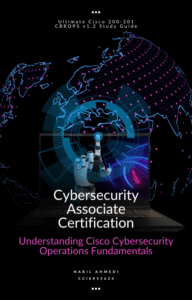AI Agents vs. Chatbots: Understanding the Next Evolution of Artificial Intelligence
Artificial Intelligence has made remarkable strides in recent years, shifting from rule-based chatbots to intelligent agent systems capable of autonomous, proactive interactions. As we approach 2026, understanding the nuanced differences between AI agents and chatbots is essential for businesses and technologists looking to leverage AI’s full potential. This article explores the capabilities, applications, and future growth of these technologies, clarifying their roles and explaining why AI agents represent the next frontier in AI evolution.
Defining Chatbots and AI Agents
What are Chatbots?
Chatbots are AI programs designed primarily to simulate conversation with users. Typically rule-based or employing basic natural language processing (NLP), chatbots handle straightforward inquiries, FAQs, or scripted dialogs. They excel in providing 24/7 automated customer support but are limited by their scripted nature and reactive operational mode.
What are AI Agents?
AI agents possess broader intelligence and autonomy. They integrate deep learning, reinforcement learning, and reasoning abilities to make decisions, execute multi-step workflows, and proactively interact with environments and systems. Unlike chatbots, AI agents act as digital assistants or autonomous workers that learn from experience and adapt dynamically.
Key Differences Between AI Agents and Chatbots
| Feature | Chatbots | AI Agents |
|---|---|---|
| Primary Purpose | Engage in conversation and answer queries | Execute multi-step tasks, make decisions, and perform actions |
| Decision-Making | Follows predefined rules or simple AI responses | Analyzes data, weighs options, and acts autonomously |
| Scope of Work | Single, isolated tasks (e.g., answering FAQs) | End-to-end workflow management and complex problem-solving |
| Integration Level | Limited integration with systems | Deep integration with enterprise tools (ERP, CRM, APIs) |
| Context Awareness | Basic session memory, often resets | Retains long-term memory across interactions for personalization |
| Adaptability | Limited adaptability | Dynamically adapts based on data, inputs, and triggers |
The Evolving Role of AI Agents in 2026
Proactive Interaction and Autonomous Action
AI agents proactively initiate conversations or actions based on analysis of system states, user behavior, or external data. They can autonomously complete multi-step workflows without requiring explicit user prompts.
Integration Across Enterprise Systems
Unlike chatbots limited to specific platforms, AI agents integrate deeply with multiple enterprise applications including CRMs, ERPs, ticketing systems, and analytics platforms, orchestrating complex business processes.
Learning and Improvement Over Time
AI agents continuously learn from user interactions, environmental changes, and feedback, improving decision accuracy and operational efficiency—a major leap beyond chatbot static capabilities.
Business Use Cases for AI Agents and Chatbots
Chatbots
- Customer service FAQs
- Basic booking and scheduling
- Static information retrieval
AI Agents
- End-to-end customer support orchestration
- Predictive maintenance and automated issue resolution
- Intelligent marketing campaign management
- Supply chain and logistics autonomous management
Challenges and Opportunities
Challenges
- Data privacy and compliance
- Complex system integration
- Trust and transparency in autonomous decisions
Opportunities
- Scalable automation for complex workloads
- Improved customer experience through personalization
- Cost reduction and operational efficiency
Tips for Adopting AI Agents in Your Organization
- Start with clear, well-defined goals
- Choose scalable AI platforms supporting agentic capabilities
- Focus on integration with existing enterprise infrastructure
- Build trust with explainability and human-in-the-loop mechanisms
- Invest in ongoing monitoring and continuous learning
Conclusion: Embracing the AI Agent Revolution
AI agents represent the next evolution in artificial intelligence, going far beyond chatbots’ conversational interfaces. These autonomous, learning, and decision-making systems promise to transform business workflows, customer interactions, and digital experiences by 2026. By understanding their differences and capabilities, organizations can better plan for adoption and leverage AI’s full transformative power.
The AI revolution is moving from conversation to cognition. Prepare your business and career for the future of intelligent AI agents today.
